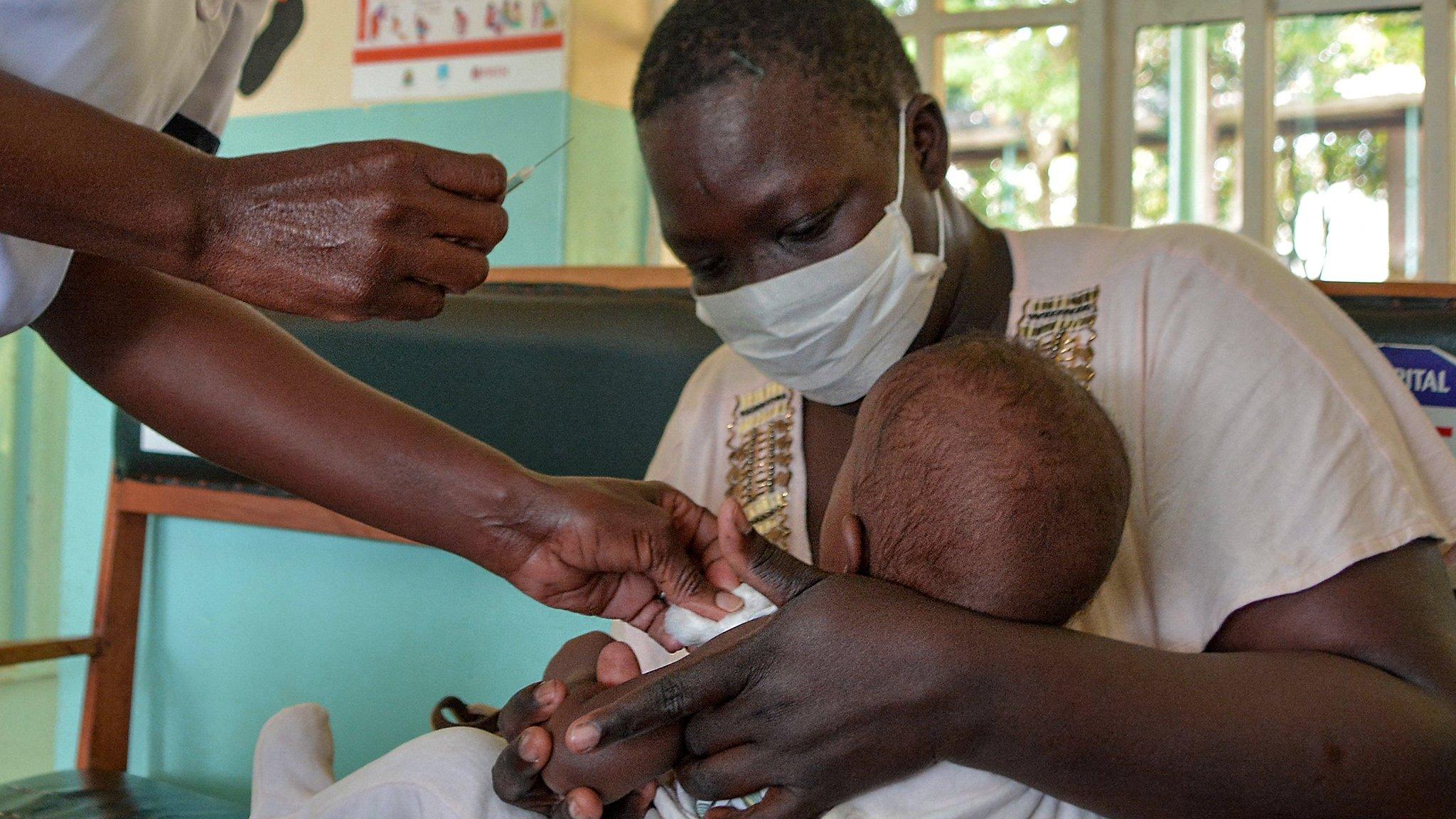Malaria: Cameroon launches world's first vaccination programme
- Published
- comments
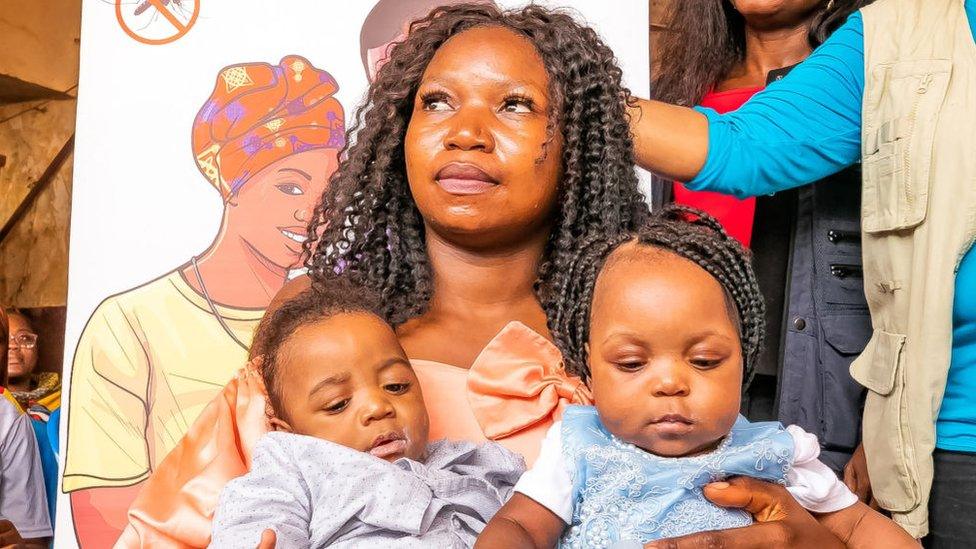
Baby Daniella (right) was the first child to receive the new vaccine
Cameroon, a country in Africa, has launched the world's first vaccination programme to help stop the spread of malaria among children.
Malaria is a disease which is spread by a particular type of mosquito and it can be life-threatening if it isn't detected and treated quickly.
It's more common in parts of the world with hotter and more humid climates including Asia, South America and Africa. Around 94% of malaria cases are found in these areas, according to the latest figures from the World Health Organisation (WHO).
More than 600,000 people lose their lives to the disease each year, and children under the age of five are the most affected group.
The first jab of the new vaccine - which is called RTS,S and took 30 years of research to develop - was given to a baby girl named Daniella at a health facility in Cameroon on Monday.
It follows successful trials carried out in other parts of Africa including Kenya, Ghana and Malawi, with more than two million children receiving malaria jabs since 2019.
There were significant reductions in both severe malaria illness and the number of children infected with the disease having to go hospital as a result.
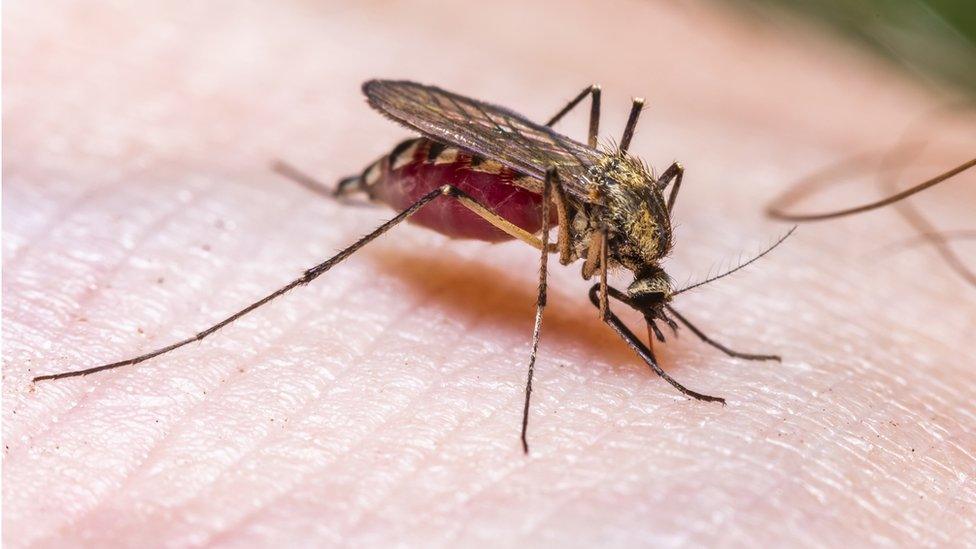
Malaria is spread by mosquitos
Some of the more common symptoms of malaria which can be spotted early are fever, headache and chills, according to the World Health Organisation.
What's next?
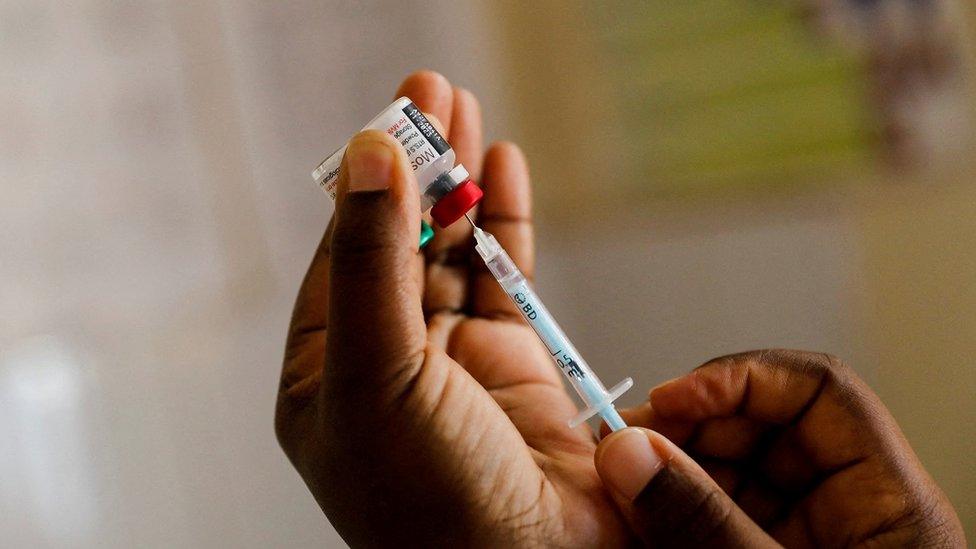
The malaria jab has already been trialled in Kenya, Ghana and Malawi
The RTS,S jab will be given to children in Cameroon free of charge, according to the country's government. Also, all children under six months old will get it automatically when they're given other vaccinations they need.
Twenty other countries aim to roll out the vaccination programme in 2024, with around 6.6 million children in these nations targeted for malaria vaccination over the next two years.
Last year, the WHO said the move was "a historic step towards broader vaccination against one of the deadliest diseases for African children".
What has been said about the new jab?
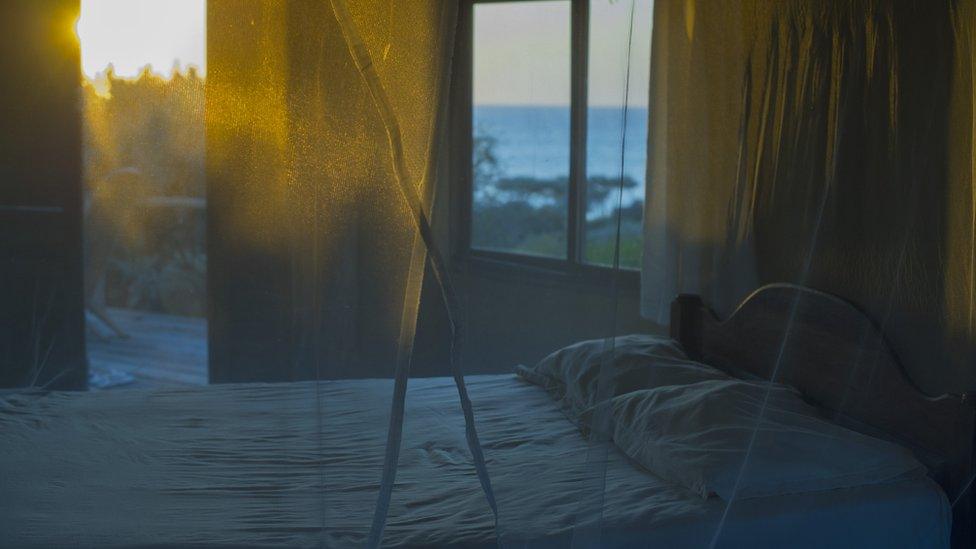
Mosquito nets are one of the tools used to help limit the spread of malaria
Despite many viewing the new vaccine as a huge breakthrough, some concerns have been raised.
Children will need to be given four doses of the The RTS,S jab before they turn two years old and it's said to be only about 30% effective, with its protection beginning to fade after several months.
GlaxoSmithKline (GSK), the British company which developed the jab, said it can only produce about 15 million doses a year.
However, there is a second malaria vaccine, produced by Oxford University, which has been approved by the WHO and this could be rolled out later this year.
Some health experts have also made it clear that despite the introduction of the new jab, funding and resources shouldn't be taken away from the broader fight against malaria. They say the vaccine should be used alongside existing tools like bed nets and insect repellent which are currently used to tackle the disease.
- Published25 April 2024

- Published13 April 2023
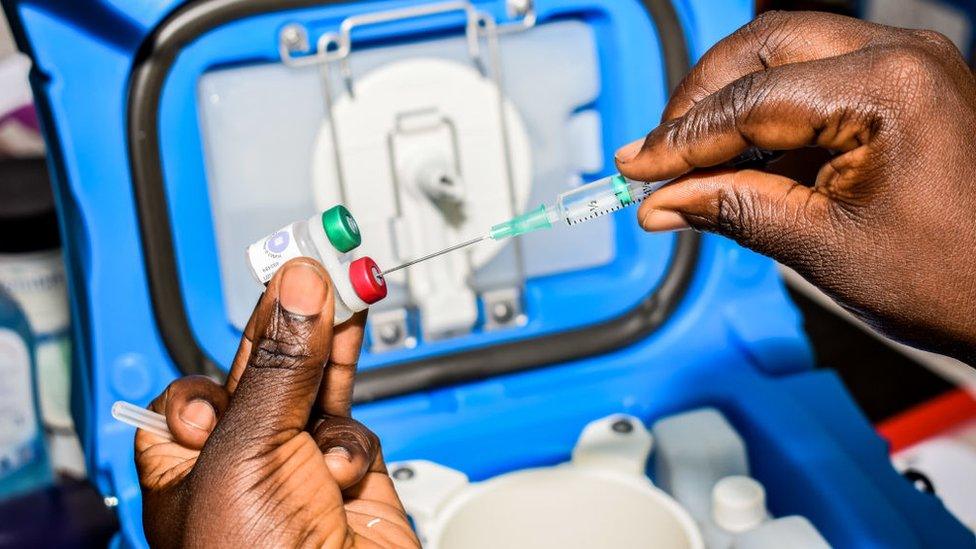
- Published8 September 2022
